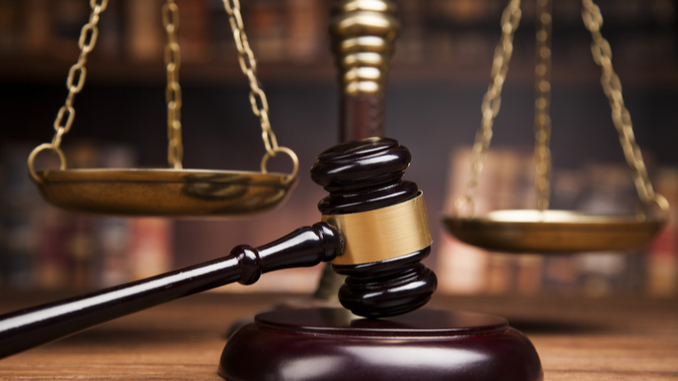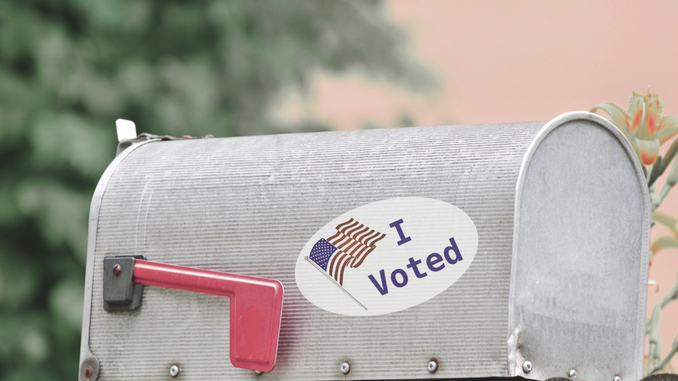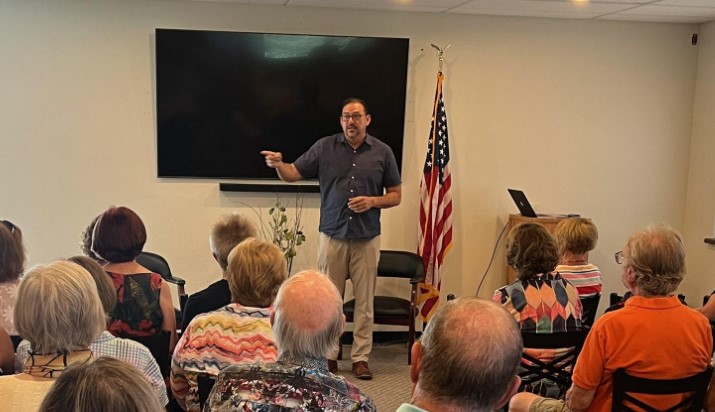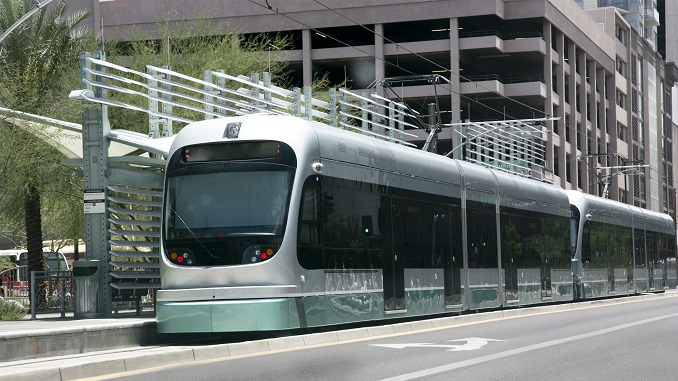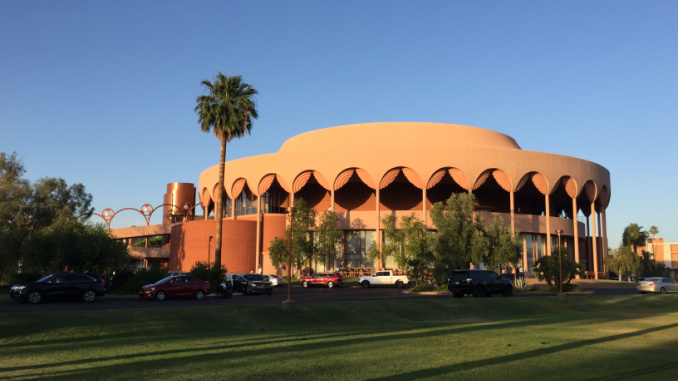
by AZ Free Enterprise Club | Sep 2, 2023 | Opinion
By the Arizona Free Enterprise Club |
The federal government and state governments across the country should be doing everything they can to ensure election integrity going forward. Over the past few years, the Arizona legislature has taken this to heart. But the Left has been fighting against every legitimate election reform that comes from conservatives. Not only are they filing lawsuits in court, but they’ve been deploying a new tactic that threatens the First Amendment.
Lawsuits Against Election Integrity Bills
In 2021, the Arizona legislature passed, and then-Governor Ducey signed into law SB 1485—a law designed to clean up Arizona’s early voter list. Then in 2022, state lawmakers followed that up with HB 2243 (to ensure regular voter list maintenance) and HB 2492 (to ensure that only U.S. citizens are voting in our elections).
These are commonsense laws that everyone should be able to get behind, but the Left gave up commonsense years ago…
>>> CONTINUE READING >>>

by AZ Free Enterprise Club | Aug 13, 2023 | Opinion
By the Arizona Free Enterprise Club |
Clean and accurate voter rolls are a cornerstone to safe and secure elections. And they are required by both state and federal law. Section 8 of the National Voter Registration Act (NVRA) specifically obligates states to conduct a general program that makes a reasonable effort to remove the names of ineligible voters from the official lists of eligible voters due to death or change of residence. The U.S. Supreme Court even backed this up in its 2018 decision in the case Husted v. A. Philip Randolph Institute.
But Arizona’s current Secretary of State Adrian Fontes and its former Secretary of State (now Governor) Katie Hobbs have failed to perform the necessary voter list maintenance. And right now, 14 Arizona counties are in violation of Section 8 of the NVRA…
>>> CONTINUE READING >>>

by Corinne Murdock | Aug 10, 2023 | News
By Corinne Murdock |
The secretary of state may face a lawsuit come November if he fails to clean up alleged dirty voter rolls in 14 counties.
In a letter submitted Tuesday, Arizona Free Enterprise Club President and Executive Director Scott Mussi — in his capacity as a voter — accused Secretary of State Adrian Fontes of not following Section 8 of the National Voter Registration Act (NVRA).
The pre-litigation letter alleged that four Arizona counties reported having more voters than voting-age adult citizens, per public voter registration records compared with Census Bureau data. These were identified as Apache County with 117.4 percent voter registration rate, La Paz County with 100.5 percent voter registration rate, Navajo County with 100.1 percent voter registration rate, and Santa Cruz County with 112.6 percent voter registration rate.
The letter also alleged that nine counties have voter registration rates exceeding 90 percent of adult citizens over 18 years old, and one county with its voter registration rate exceeding 80 percent, which outpace national voter registration rates in recent years. These counties were identified as Cochise (93.4 percent), Coconino (93.6 percent), Gila (90.6 percent), Maricopa (97.8 percent), Mohave (95.2 percent), Pima (92 percent), Pinal (91.8 percent), Yavapai (99 percent), Yuma (94.3 percent), and Graham Counties (81.1 percent).
The national voter registration rate sits at around 69.1 percent, per the Census Bureau. In Arizona, those rates were 76.4 percent in 2020 and 68.6 percent in 2018.
As of last month, there were nearly 4.2 million registered voters. Independent voters lead with 1.45 million registrants (34.5 percent), followed by Republicans with 1.44 million (34.4 percent), Democrats with 1.26 million (30 percent), Libertarians with 33,700 (0.8 percent), and No Labels members with 8,500 (0.2 percent).
“Discrepancies on this scale almost certainly cannot be attributed to above-average voter participation, but instead point to deficient list maintenance,” stated the letter.
The letter requested that Fontes modify the current list maintenance procedures to identify and remove individuals who are ineligible to vote due to a change in residence, incarceration, death, or those ineligible for other reasons.
Arizona voters weren’t alone in this endeavor. Also on Tuesday, Virginia voters filed a similar pre-litigation letter accusing the Virginia Commissioner of Elections Susan Beals of similar NVRA negligence across 101 counties. The Honest Elections Project (HEP) assisted both Arizona and Virginia voters in their pre-litigation notices. The voters gave their respective election leaders 90 days to comply with the NVRA, and 45 days to respond to the letter.
The requested response would include details of the NVRA compliance efforts, policies, and programs Fontes has taken or plans to take prior to the 2024 general election, along with complete timelines and results for any ongoing plans.
In a press release, Mussi said that it wasn’t only Fontes but the former secretary of state Katie Hobbs, now governor, which were to blame for the dirty voter rolls.
“It is apparent that Secretary of State Adrian Fontes and his predecessor have failed to perform the necessary voter list maintenance required by state and federal law,” said Mussi. “Clean and accurate voter rolls are a cornerstone to safe and secure elections, and we expect that our election officials will address these issues as quickly as possible.”
Corinne Murdock is a reporter for AZ Free News. Follow her latest on Twitter, or email tips to corinne@azfreenews.com.

by Corinne Murdock | Aug 1, 2023 | News
By Corinne Murdock |
The Arizona legislature approved the Maricopa County transportation tax on Monday along bipartisan lines, 43-14 in the House and 19-7 in the Senate.
The bill, SB1102, would allow voters to decide whether to maintain the current transportation excise tax: Proposition 400, set to expire at the end of 2025. It doesn’t maintain the original reformation desired by Republican lawmakers: a choice to separate roads and commuter rail when it comes to funding. Prop 400 binds the two together as a package deal.
The legislature convened to consider SB1102 after Gov. Katie Hobbs vetoed the version of the bill splitting the Prop 400 question (SB1246) last month.
The 14 House legislators who opposed the bill were State Reps. Neal Carter (R-LD15), Joseph Chaplik (R-LD03), Justin Heap (R-LD10), Laurin Hendrix (R-LD14), Rachel Jones (R-LD17), Alexander Kolodin (R-LD03), David Marshall (R-LD07), Cory McGarr (R-LD17), Steve Montenegro (R-LD29), Barbara Parker (R-LD10), Jacqueline Parker (R-LD15), Michael Peña (R-LD23), Beverly Pingerelli (R-LD28), and Austin Smith (R-LD29). The seven Senate legislators who opposed the bill were State Sens. Shawnna Bolick (R-LD02), Sally Ann Gonzales (D-LD20), Jake Hoffman (R-LD15), Anthony Kern (R-LD27), J.D. Mesnard (R-LD13), Wendy Rogers (R-LD07), and Justine Wadsack (R-LD17).
The bill’s passage marked a divide among Republican lawmakers as leadership declared it a win. Senate President Warren Petersen (R-LD12) said in a press release that the bill would ensure infrastructure development to counter the rising rates of vehicle congestion and travel times on the road while preventing ineffective environmentalist policies.
Sen. Frank Carroll (R-LD28) noted that the bill restricted any level of Arizonan government from restricting the use or sale of a vehicle based on its energy source, and required mass transit to recoup at least 10 percent of costs from farebox revenues beginning in 2027, and then 20 percent by 2031.
Opponents disagreed that the bill constituted a win. Kolodin argued during the floor vote that the bill denied voters true choice. Kolodin estimated that Prop 400’s continuation would halve road funding in order to pay for other commuter projects used by one percent of the population. He noted that SB1102 further bled roads funding by allowing those funds to be used for other projects, like bicyclist paths and sidewalks.
“This bill denies voters of Maricopa County a real choice. It holds road funding hostage in order that the voters, who would otherwise not vote in favor of spending 40 percent of the money of this new tax on transit projects that less than one percent of them use, that they choose to vote for them anyway to get the roads,” said Kolodin. “A tax extension is a tax increase.”
Rogers said the bill constituted a tax far too expensive and weak for her taste.
Democrats championed the bill as a necessity for achieving equity.
State Rep. Marcelino Quiñonez (D-LD11) said that Prop 400 was the “responsibility” of the legislature to pass.
Heap called the bill “disappointing.”
Heap and Jones predicted that the bill’s passage marked a major win for the Democratic Party and the Hobbs administration, one that would carry into the 2024 election.
State Rep. Matthew Gress (R-LD04), who voted in favor of the bill, said it would ensure the restoration of State Route 51 and other critical pavement rehabilitation. Gress said that the 3.5 percent cap on the existing light rail system, a contingency for Hobbs’ approval, constituted a win since it was far less than other proposed rates.
The Arizona Free Enterprise Club (AFEC) voiced opposition to the plan on Sunday, warning that the bill wouldn’t prevent road diets, Vision Zero projects, and progressive air quality control measures. AFEC offered a side-by-side comparison of SB1102 and the predecessor vetoed by Hobbs last month, SB1246.
AFEC further assessed that SB1102 would enable the Maricopa Association of Governments to enact its 2050 Momentum Plan.
Prop 400 will appear on the November 2024 ballot for final voter approval. The tax was set to expire at the end of 2025.
Corinne Murdock is a reporter for AZ Free News. Follow her latest on Twitter, or email tips to corinne@azfreenews.com.

by AZ Free Enterprise Club | Jul 19, 2023 | Opinion
By the Arizona Free Enterprise Club |
It looks like we struck a nerve at one of the largest universities in the United States. Last week, the Free Enterprise Club published an article on Arizona State University’s (ASU) failure to uphold free speech. The article came in the aftermath of an event held by the T.W. Lewis Center for personal development—a center of the Barrett Honors College—that featured prominent conservative speakers like Robert Kiyosaki, Dennis Prager, and Charlie Kirk.
While the event was allowed to proceed, it faced a campaign from 39 of the 47 faculty from the honors college who tried to shut it down. Then, in the months following the event, the center was not only dissolved, but two staff members lost their jobs. Now, ASU has offered a “fact check” of our article in a desperate attempt to save face. And as you might expect, it’s another swing and miss…
>>> CONTINUE READING >>>
